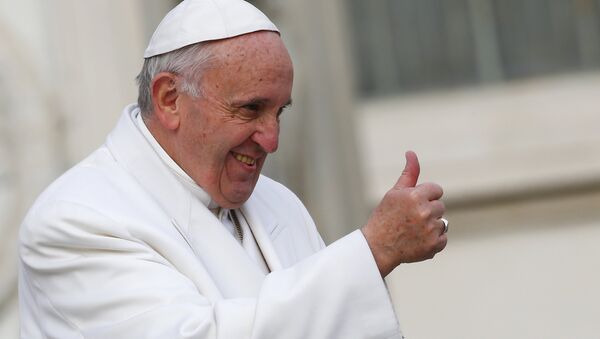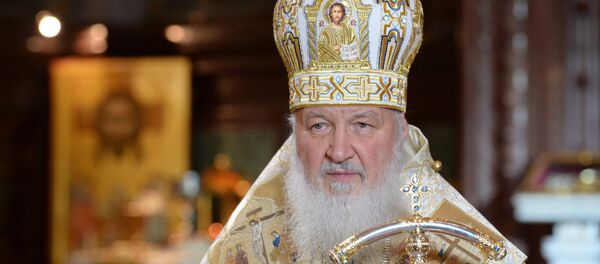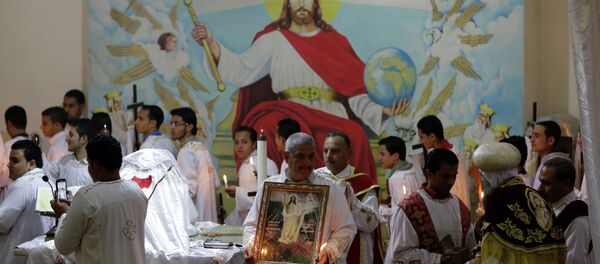Because the Russian Orthodox Church is the largest of the Eastern Orthodox Churches, the meeting scheduled to take place on Friday could launch a new era of broader cooperation on practical issues between the Orthodox and Roman Catholic worlds, McDougall suggested.
"Closer cooperation between the Catholic and Orthodox Churches will develop only to the extent that the Russian Orthodox are on board with the idea," he maintained.
Pope John Paul II, who died in 2004, longed to be invited to Russia to be able to meet with the leadership of the Russian Church, but the invitation never came as the time was not thought right, McDougall recalled.
"So Patriarch Kirill's willingness to meet with Pope Francis, even if the meeting takes place abroad, is quite significant," he explained.
Anthony Salvia, former US State Department official knowledgeable about church matters, told Sputnik that the meeting in Havana would likely be a success, because it would avoid any discussion or negotiation on the theological issues that have kept the two great confessions apart for 962 years, since 1054.
"According to the Vatican, the Pope and the Patriarch will discuss aid to persecuted Christians — a matter on which the two churchmen are likely to agree, rather than the cosmic ones of re-unification and inter-communion," he explained.
Pope Francis, like his predecessor Pope Benedict XVI (2004-2013) had no desire to try and impose theological pressures on the Orthodox chuches, Salvia said.
"Francis is continuing in the vein of his predecessor Benedict XVI who relegated the cosmic issues to the back burner," he said, adding that such an approach was not because of lack of interest.
Francis sees a range of dangerous challenges to the Catholic and Orthodox confessions alike, Salvia explained.
The current pope wants "to increase cooperation between the two main apostolic churches on the burgeoning threats to both of them — secular materialism, relativism, Europe's demographic decline, Islamic fundamentalism and anti-Christian persecution in the Middle East," Salvia pointed out.
Benedict sought "friendship and solidarity between the Catholic and Orthodox churches based on a pragmatic agenda of achievable results," he added.
For Benedict, the revival of the Christian roots of European civilization was essential to finally end the calamities visited upon the continent by the two World Wars and the Cold War and its unhappy aftermath, Salvia concluded.
Father Russell McDougall holds a Master’s of Divinity from the University of Notre Dame and a Licentiate of Sacred Theology from the Pontifical Biblical Institute in Rome.



